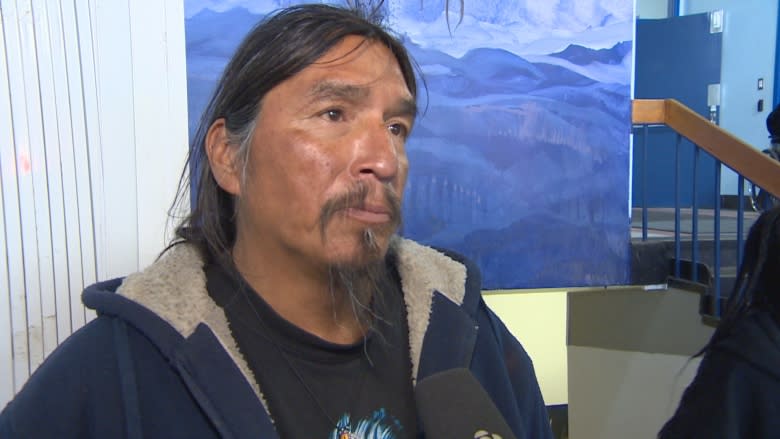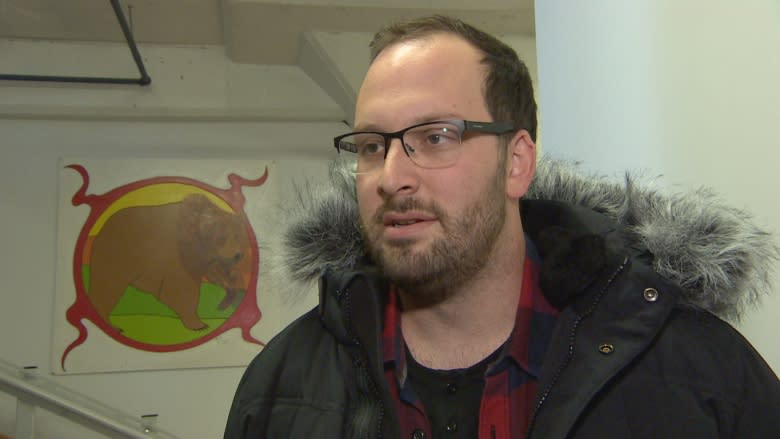Tackling homelessness a major issue in Edmonton's Ward 6 council race
Development in Edmonton's downtown has been booming since the last municipal election, but it's the people living in the shadows of the city's new skyscrapers who candidates say they'll focus on this time.
All candidates running for the council seat in Ward 6, which includes downtown, say they're making homelessness the big talking point of the race.
"The greatest challenge is that of homelessness," incumbent Scott McKeen said in his campaign materials.
Elected in 2013, McKeen has raised concerns that the number of people downtown with nowhere else to go can scare customers away from business.
It's a view shared by one of his challengers, Tish Prouse, who believes the city needs a different approach after falling behind in its 10-year plan to end homelessness.
"People are noticing an increase in people on the street, and for that matter a greater risk of safety because of the aggressiveness of many of the people who are suffering from mental illness," Prouse said.
Plan to end homelessness behind in housing targets
Randy Legard, 50, sleeps in downtown shelters and dreams of one day having his own place. But he admits he has a serious drinking problem and can't change by himself.
"I can't break the cycle, I want to, but I can't," he said. "I'm trying to bury things and I can't deal with when I'm sober."
Legard said life on the streets is difficult, but he feels part of Edmonton and its downtown.
A total of 1,752 people identified themselves as homeless during the last count in 2016.
Like Legard, half of the people included in that number are Indigenous, and a large portion also have addictions.
Workers at inner-city agencies say despite the plan to end homelessness, there is still not enough supportive housing to find spaces for those who are mentally ill or battling addictions.
"We're on the ninth year of the 10-year plan to address this housing need, and a small fraction of that housing was created," said Nathaniel LeChalifoux, an inner-city mental health worker.
The original target of the plan in 2009 called for 1,000 new units of permanent supportive housing. So far, only about 200 have been added.
The city insists the homeless count continues to drop and has said that thousands have been housed under the plan, which has since been updated.
But LeChalifoux believes the lack of housing is creating a crisis.
"Housing is a huge aspect of what offers people stability to move forward," he said. "We needed it to happen five years ago for the people we want to help now."
The city has said several times that one barrier that has slowed new building is that funds from the provincial and federal governments have dried up.
In his campaign, Prouse is suggesting a new direction.
"Lets use supportive housing within the context of private-market stock, of which we have a plethora at the moment," he said.
Instead of asking for cash to build homes, Prouse thinks the city should approach private landlords.
He thinks that will allow the city to come up with the rental units then request funds from other levels of government for social workers to support people in those homes.
McKeen has said he continues to support the original plan to build the needed housing.
Another candidate, Adil Pirbhai, is calling for a task force to examine the social housing issue.
Bill Knight, who used to be homeless and is also running for the council seat, said he thinks wellness centres that provide meals, showers, counselling and medical care are most needed.
He wants to see more funding for social agencies that deal with homelessness to help them support people in crisis.
Legard said it's an issue people should care about, because it can happen to anyone who falls on hard times.
"It's not a happy situation. I don't want anybody to be homeless."
CBC wants to hear how you think the homeless issue is affecting Edmonton's downtown in a live election show on Oct. 2, scheduled from 6 p.m. to 8 p.m. at The Needle Vinyl Tavern, 10524 Jasper Ave.



